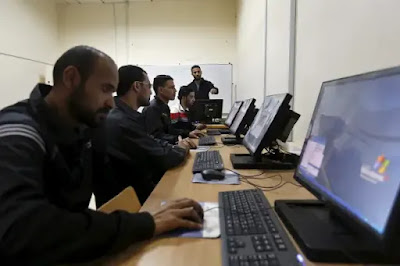Technology in Pakistan: A Slow March
Technology, including the IT industry, in Pakistan has enormous potential for growth. But teething problems, especially a lack of funds and encouragement for product development, have deterred start-ups from moving forward with disruptive innovations or technologies. While Pakistan’s technology sector struggles to get off the ground, Indian IT exports have reached more than $100 billion.
However, Pakistan can turn a corner by investing in tech start-ups and disruptive technologies, providing facilities like incubators, office space, and financial leeway. Such measures could not only promote entrepreneurship and innovation-based critical thinking but would also clean the Augean stables of poverty and unemployment. Technology is sine qua non for the 21st century and ignoring it could result in unquantifiable lost economic opportunities.
Pakistan has a very robust youth population and with measures like incubators and financial assistance the country can create a roadmap toward innovation-based technologies and breakthroughs– much like the United States did at the start of 20th century and India did in the early 1990s.
Technological innovation can be classified in different ways: product vs process, disruptive vs sustaining. It is imperative that government should enable institutions and corporations working on all types of innovation based technologies and, importantly, the processes involved.
Another important step to enhance innovation would be to have a legal framework to protect intellectual property (IP) rights. Such framework would not only penalize IP rights infringement (which is currently quite prevalent in corporate circles of Pakistan) but would also help in creating an atmosphere for innovation.
It is important for the government to understand the importance of IP rights. IP protection and the related legal framework could not only enable innovation based thinking, businesses, and products but would also help develop the IP industry in Pakistan. IP, in the form of patents, contributes enormously to national and state economies, but for now, Pakistan’s IP is stuck leap years behind other countries.
The strength of the U.S. IP industry and accompanying legal framework show in the data. According to the Global Intellectual Property Center, IP intensive industries employ 55 million Americans and are worth $5.8 trillion, more than the nominal GDPs of France and Britain. IP accounts for 72 percent of all U.S. exports, which amounts to nearly $1.5 trillion. All that is possible because the U.S. government understands the importance of mechanisms that enable IP rights protection and further technological innovation.
It is noteworthy that the American founding father so recognized the importance of innovation that they ensured IP protection for authors and inventors even centuries ago, ultimately making the United States the world leader in innovation and disruptive technologies – a fact borne out by the overwhelming number of patents, copyrights, and trademarks filed by the United States year after year.
Technology in Pakistan: A Slow March
 Reviewed by AL-MANSOOR TECH
on
October 16, 2019
Rating:
Reviewed by AL-MANSOOR TECH
on
October 16, 2019
Rating:
 Reviewed by AL-MANSOOR TECH
on
October 16, 2019
Rating:
Reviewed by AL-MANSOOR TECH
on
October 16, 2019
Rating:






No comments: